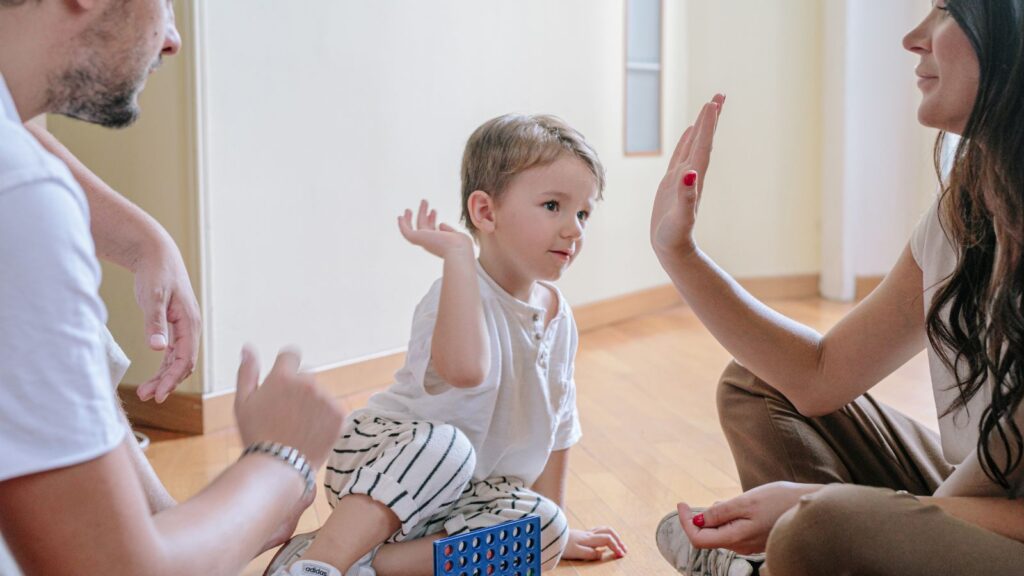In the vast sea of parenting styles, one approach is making waves: respectful parenting. It’s a method that emphasizes mutual respect and understanding, breaking away from traditional, authoritarian styles. Instead of dictating a child’s behavior, respectful parenting encourages open dialogue and cooperation.
But what does this mean in practical terms? How can parents implement this approach in their daily lives? And importantly, what are the potential benefits for both parents and children? This article delves into these questions, providing a comprehensive guide to respectful parenting.
Respectful Parenting
Respectful parenting, an approach grounded in mutual respect and understanding, shapes a more harmonious relationship between parents and children. The method diverges from traditional authoritarian styles, promoting open dialogue and cooperation instead of dictating behavior. In this section, we’ll delve deeper into the core principles and values of respectful parenting and distinguish it from its traditional counterpart.
Respectful parenting abides by several key principles that define its unique approach. One of the pivotal foundations is empathy, recognizing and validating children’s emotions at any given moment. It’s complemented by the principle of boundaries, establishing clear and considerate limitations for children’s behavior.
Respectful parenting also prioritizes communication, steering away from commanding orders and instead sparking healthy conversations. Lastly, autonomy, allowing children to be the main drivers of their life decisions, provided they’re within reasonable boundaries.
Benefits of Respectful Parenting
Respectful parenting, revolving around mutual understanding, facilitates not only a peaceful home environment but also yields various benefits for children’s growth and development. Delving into some specifics, these advantages encompass emotional and social development, in addition to long-term relationship benefits.
One crucial aspect of respectful parenting lies in its ability to foster A1-class emotional and social development in children. Assisting with emotional regulation, this parenting style encourages children to express their emotions freely, fostering a sense of self-awareness. So, instead of suppressing sadness or anger, children are guided to understand and deal with these emotions healthily and constructively.
By recognizing a child’s emotions, parents set the stage for developing empathy. When a child freely demonstrates empathy, they’re better equipped to relate to peers, resolving conflicts, and building strong and healthy relationships. In terms of social development, children learn respect and consideration for others—essential virtues in forging valuable social relationships—and they’re more likely to exhibit these qualities when their emotional needs are consistently respected.
Challenges of Implementing Respectful Parenting
While the benefits to adopting a respectful parenting approach are compelling, this style of parenting does pose certain challenges. It’s important to navigate and address these to achieve maximum results. Let’s explore a few common misconceptions and strategies for overcoming barriers to implementing this parenting style.
- Equating Respect with Permissiveness: Often, people believe that respectful parenting equates to permissive parenting. But, being respectful doesn’t imply the absence of rules or structure. Rather, it facilitates the establishment of clear and fair rules with consequences, understood by the child.
- Confusing Autonomy with Neglect: Granting children autonomy doesn’t mean neglecting them. In reality, it involves giving them appropriate levels of independence, between strict control and total freedom.
- Considering Communication as Always Agreeable: Open communication doesn’t mean you always agree. Actual communication involves discussing disagreements and making compromises.
Overcoming Barriers
Overcoming the challenges in implementing respectful parenting often revolves around adjusting one’s mindset and actions.
- Adopt Adaptability: Adapting to a respectful parenting approach requires flexibility. Parents need to adjust their expectations and adapt to their child’s needs and abilities.
- Learn Patience: A respectful parenting approach takes time to implement, and seeing results might not be immediate. Patience in such scenarios becomes a crucial trait.
- Allow for Mistakes: Mistakes are part of the learning process. Parents, as well as children, are allowed to err and learn.
- Practice Active Listening: Respectful parenting rests on solid communication—listening to understand, not just reply.






